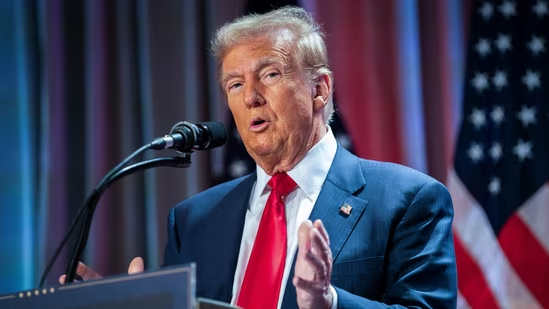The Conviction: A Detailed Overview
In May 2024, Trump was convicted on 34 felony charges of falsifying business records. These charges stemmed from a $130,000 payment made to adult film actress Stormy Daniels during the 2016 presidential campaign to suppress claims of an alleged affair—an allegation Trump has repeatedly denied. Prosecutors argued that the payment was strategically disguised to protect Trump’s political aspirations, violating campaign finance laws and undermining transparency.
The Sentencing Expectation
Judge Juan Merchan is expected to grant Trump an “unconditional discharge,” a legal term indicating no prison time, probation, or financial penalties, though the conviction will remain on his record. Legal analysts note this outcome aligns with Judge Merchan’s earlier statements, which signaled a measured approach to sentencing for this case. Despite the absence of punitive measures, the ruling holds significant implications for Trump’s legacy and the perception of accountability for political figures.
Supreme Court Ruling and Legal Maneuvering
The U.S. Supreme Court recently denied Trump’s emergency request to halt today’s proceedings. The 5-4 decision represents a narrow defeat for Trump’s legal team, which has vowed to pursue further appeals. This development reflects the enduring legal battles that have defined Trump’s career and presidency, with implications for both his supporters and critics.
Trump’s Virtual Participation
In a move reflecting the unique circumstances of this sentencing, Trump will participate virtually from his Mar-a-Lago estate. While he is not obligated to speak, he has indicated a willingness to address the court, potentially using the platform to reinforce his narrative of political victimization. This approach is consistent with Trump’s strategy of framing legal challenges as politically motivated attacks.
Broader Implications
The case represents a watershed moment in American political and legal history, highlighting the intersection of personal conduct, campaign finance laws, and public accountability. Experts caution that while the “unconditional discharge” avoids immediate consequences, the conviction’s symbolic weight may influence Trump’s presidency and the broader political landscape.
Legal scholar Dr. Rebecca Allen commented, “This sentencing underscores the tension between holding leaders accountable and navigating uncharted constitutional territory. The public will likely debate the ramifications for years to come.”
Looking Ahead
As Trump prepares for his inauguration, the legal and political ramifications of today’s sentencing will continue to dominate discourse. Observers are keenly watching for potential ripple effects, including shifts in public opinion, legal precedents for future cases, and the broader narrative surrounding Trump’s polarizing presidency.

